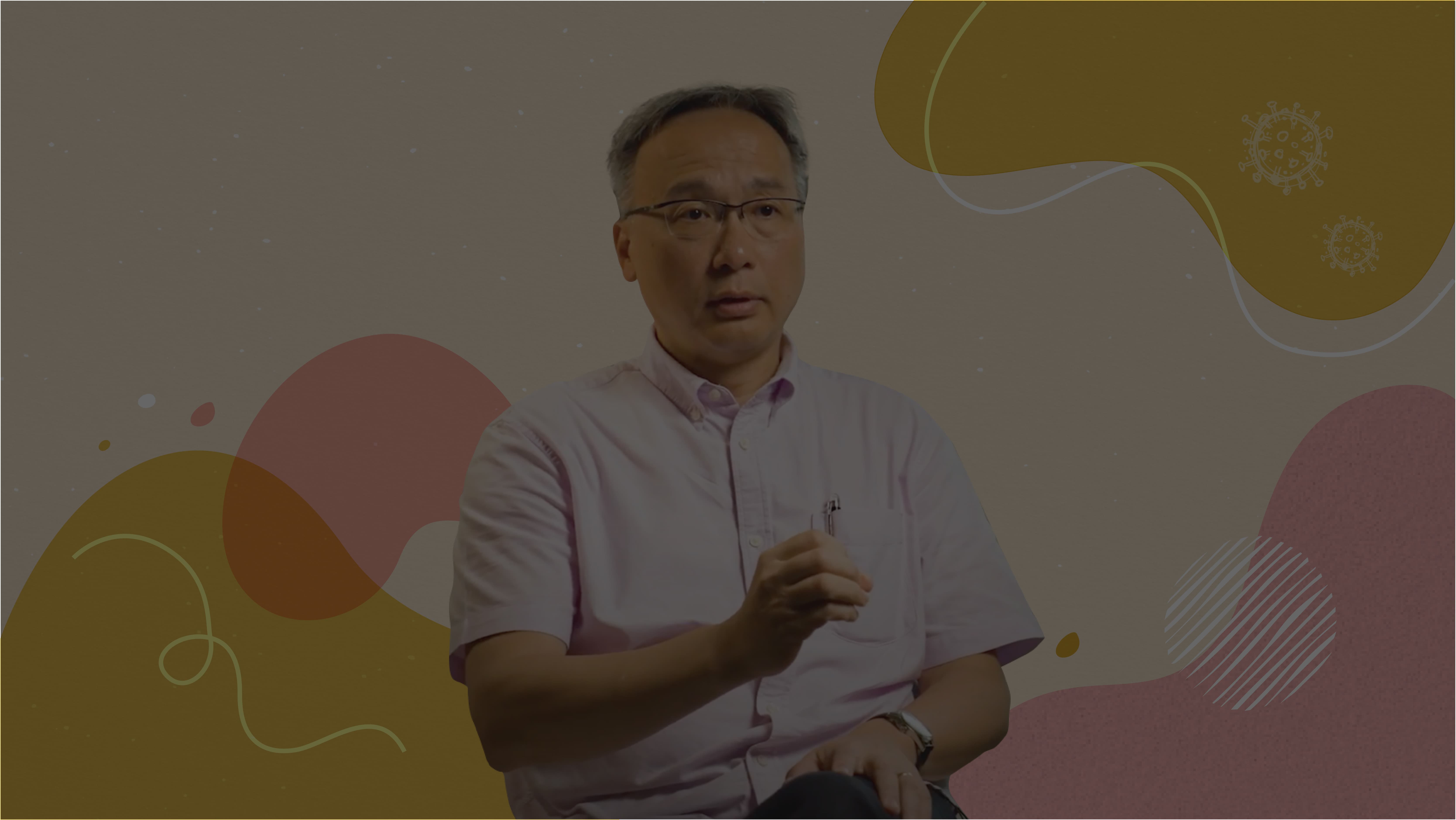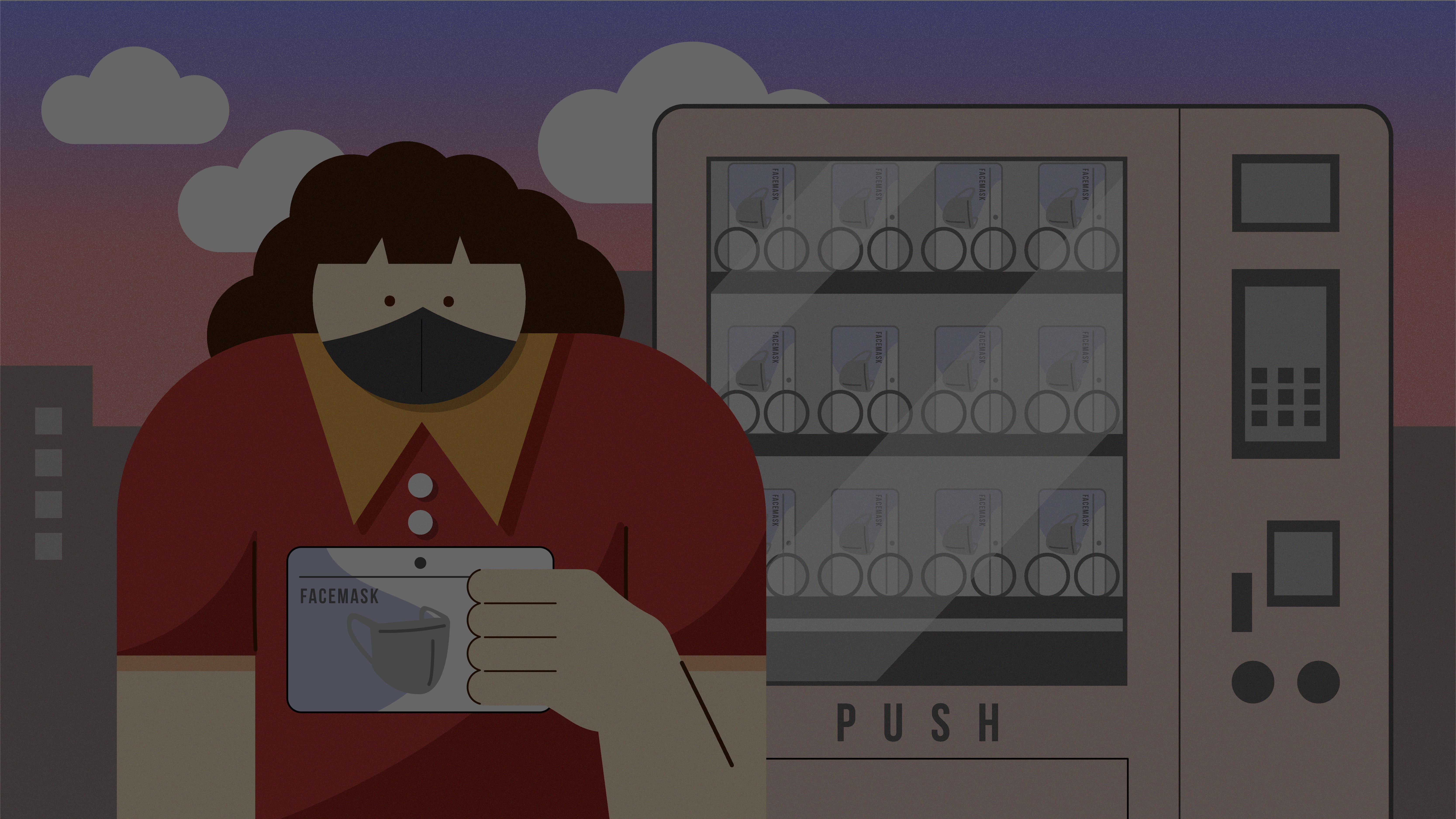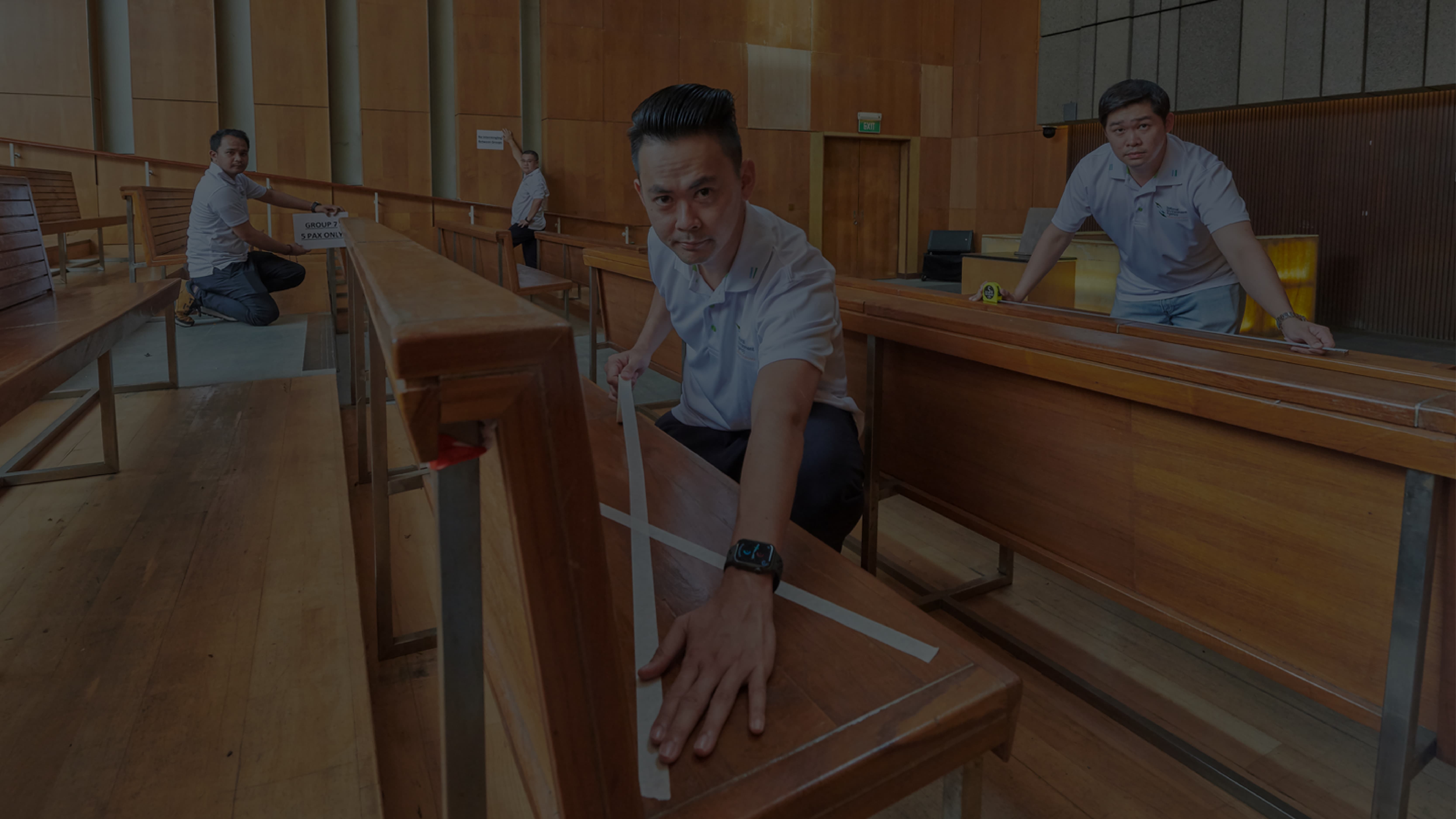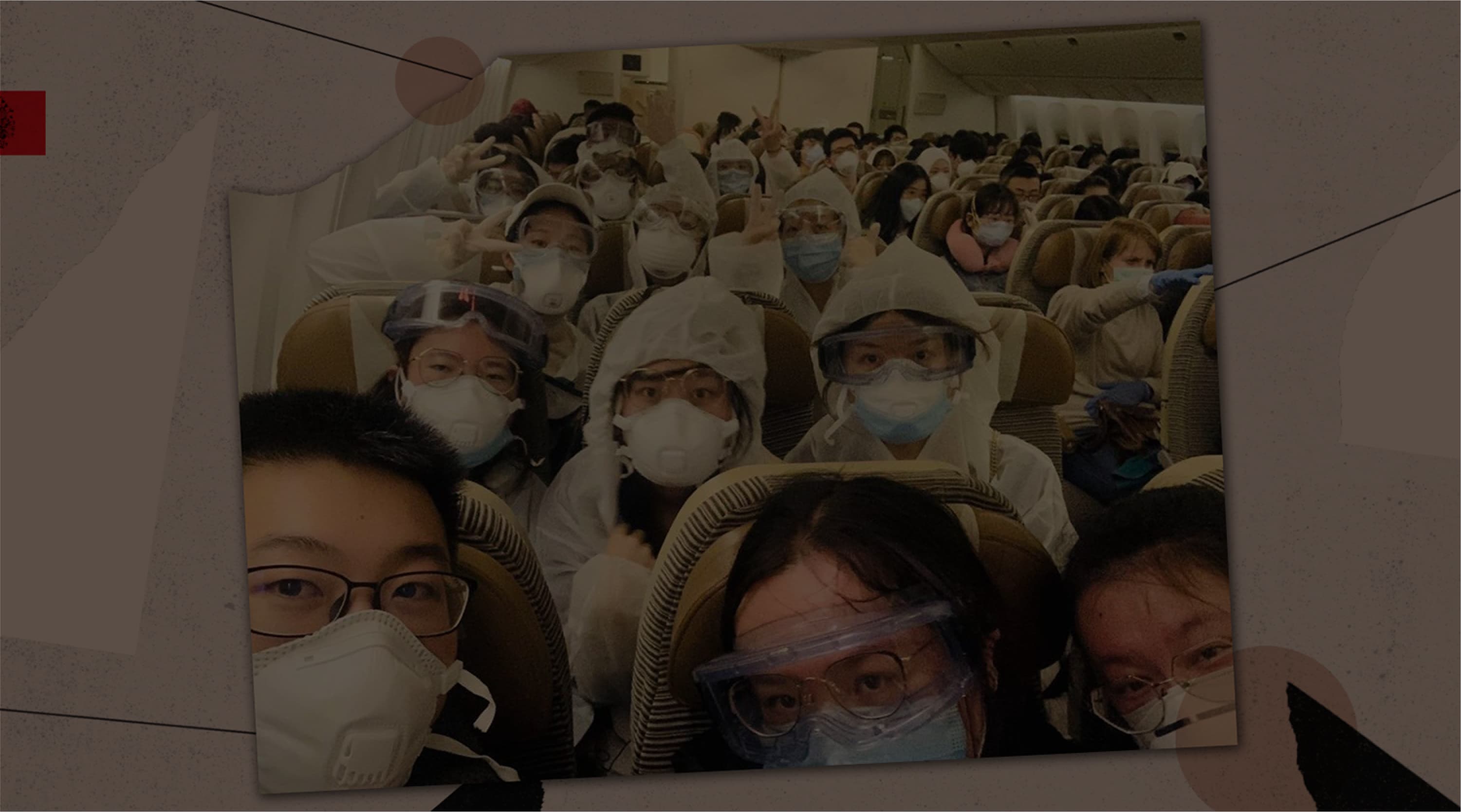Virtually Yours
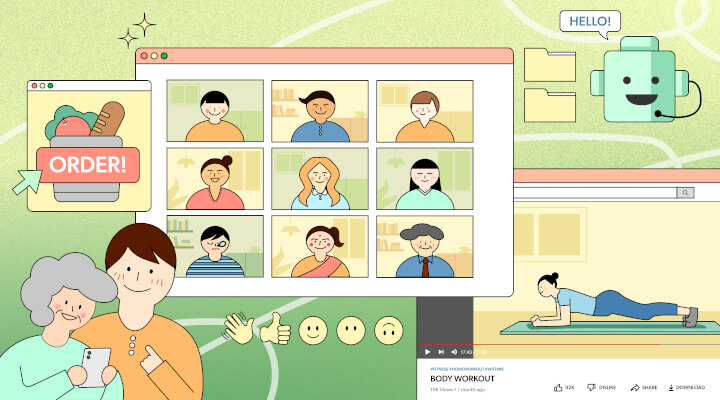
Even as physical distancing became the norm, especially during the two-month Circuit Breaker from April to May 2020, typically face-to-face public services quickly moved into the digital space to bridge the gap and ensure continuity.
Particular effort was spent on creating a virtual support system to help communities with higher needs. Over and beyond essential services, many digital platforms were also rolled out to encourage inclusivity and connectivity so that even while physically apart, segments of Singapore could still take part in all the joys of everyday life.
Helping Communities Go Digital
As a plethora of services went fully digital – the challenge was to ensure the less tech-savvy could make use of them to reap the benefits and continue to access services and keep in touch.
To this end, the Infocomm Media Development Authority (IMDA) partnered with the National Library Board (NLB) and Mediacorp to launch an eight-part TV series, Learn Together with Me. On it, host Dennis Chew invited celebrity guests to share tips on digital services and applications, such as using video calls, making cashless payments, online grocery shopping and consulting a doctor on telemedicine apps.
As face-to-face programmes were suspended during the Circuit Breaker period, the IMDA partnered with the NLB, Cognizant, Grab and Microsoft to host one-to-one Virtual Digital Clinics with volunteers to provide real-time assistance on how to use a smartphone. These “digital doctors” proved to be of even greater relevance and help during the pandemic when essential services moved online.

On a larger scale, the IMDA launched the SG Digital Office (SDO) in June 2020, actively recruiting Digital Ambassadors to accelerate digital adoption. Through the Seniors Go Digital and Hawkers Go Digital programmes, the Digital Ambassadors helped connect seniors, stallholders and small businesses to the right tools and mobile plans, as well as guided them on making video calls, accessing government e-services, scanning QR codes and adopting e-payments.
To date, the SDO has trained 150,000 seniors in basic digital skills, such as how to access digital government e-services, communicate and transact online via smartphones, and helped 11,000 stallholders to adopt e-payment.

Access to the Internet for All
Access to the web has become more important than ever – and could be a lifeline to the world, especially during periods of restricted movement. To ensure as many people as possible have access to the internet as possible, the IMDA launched the Mobile Access for Seniors scheme to help those with financial constraints and who can't afford a mobile phone or plan. Eligible seniors above 60 years old can buy a smartphone for as little as $20 a month and enrol for a two-year mobile plan at $5 a month, allowing them to enjoy unlimited incoming local calls, no excess data charges and free caller ID.
To support home-based learning for students during the COVID-19 period, the IMDA also pivoted and ramped up operations to provide home broadband and computers to school-going children from low-income households more speedily, and enhanced its digital access provisioning by allowing faster broadband speeds and more device options.
To further digital inclusion, the IMDA also established the Digital for Life (DfL) movement. Launched by President Halimah Yacob as its Patron in February 2021, the movement now has over 100 partners from the people, private and public sectors providing some 200,000 Singaporeans with digital tools and skills. This includes promoting digital wellness among our youth and community, and supporting persons with disabilities and hawkers with basic digital skills.
Staying in the Loop With Real-time Updates
AskJamie the chatbot has been a ubiquitous presence on government websites since 2014.
Fast forward to 2020, the Government Technology Agency introduced the Virtual Intelligent Chat Assistant (VICA) platform, which enables chatbots that can dynamically respond to enquiries across different domains from multiple government agencies.
During the initial COVID-19 outbreak in February 2020, the VICA team worked with the Ministry of Communications and Information and developed a COVID-19 chatbot to provide critical public information related to the pandemic, while leveraging on AI to improve the accuracy of responses. Other agencies have since come onboard VICA, such as OneService’s Kaki and Energy Market Authority’s Ask Emma. Some of these chatbots are also accessible via other messaging platforms (FB Messenger, WhatsApp etc.) for users’ convenience.

Showing Up for the Community
Singapore’s one-stop integrated giving platform, the Giving.sg portal, provides volunteering and donating opportunities for individuals – from fundraising and blood donation drives to pairing medical chaperones for the elderly who need additional care. The portal is hosted by the National Volunteer and Philanthropy Centre (NVPC), which is under the Ministry of Culture, Community and Youth. During the early days of the pandemic, it became an important platform to rally Singaporeans together to raise funds for specific groups.
Along the same lines, the NVPC worked with Outside, a mobile app to connect people to collaborate through simple acts of care. During the pandemic, the app was tweaked so that seniors could seek out volunteers to help them with day-to-day errands.
Appreciating Our Home Through the Arts and Heritage
If anything, the pandemic reminded us just how much inspiration and a sense of solidarity with other Singaporeans the arts and heritage can provide. As physical activities became more restrictive, our appetite for digital cultural offerings – for education, entertainment and societal connections – only grew.
In response, the National Heritage Board developed a myriad of online content, including virtual exhibitions, festivals and talks. The DigiMuse: Circuit Breaker Edition invited local creatives to pitch and produce bite-sized heritage-related digital content, such as augmented reality filters for social media and roleplaying games. Of more than 70 proposals from the open call in May 2020, 20 were selected, with each receiving up to S$5,000 to bring their creative proposals to life. Meanwhile, the 2020 Singapore Heritage Festival went digital for the first time for its 17th edition, and achieved a reach of over 1 million across all its online offerings – and returned in 2021 and 2022 in a hybrid format.

HIITing the Gym While at Home
With group exercises out of the question, many turned to free online exercise to stay physically active and work off those COVID-19 comfort foods. The Health Promotion Board provided a variety of free online workout classes, such as aerobics, yoga, Zumba and K-pop dance via Zoom.
In April 2020, Sport Singapore launched the ActiveSG Circle, a platform for businesses and instructors to conduct classes virtually and engage a wider audience. Within a year, the platform garnered more than 58 million views with a mix of interactive classes, webinars and training videos.
Seeding Citizen Engagement Online
As part of the Gardening with Edibles programme, the National Parks Board (NParks) distributed free seed packs to 400,000 households in 2020, to encourage gardening as a form of respite and to promote well-being during the COVID-19 pandemic. NParks complemented the Gardening with Edibles programme with a wide range of digital engagement efforts and online resources to guide people to grow edibles at home. For strengthening community bonds and social resilience, the Gardening with Edibles programme won the Citizen Engagement Excellence Award at the 2022 COVID-19 Public Sector Transformation Awards.
- POSTED ON
Jul 6, 2022
- TEXT BY
Sheralyn Tay
- ILLUSTRATION BY
Hong Myungjin




